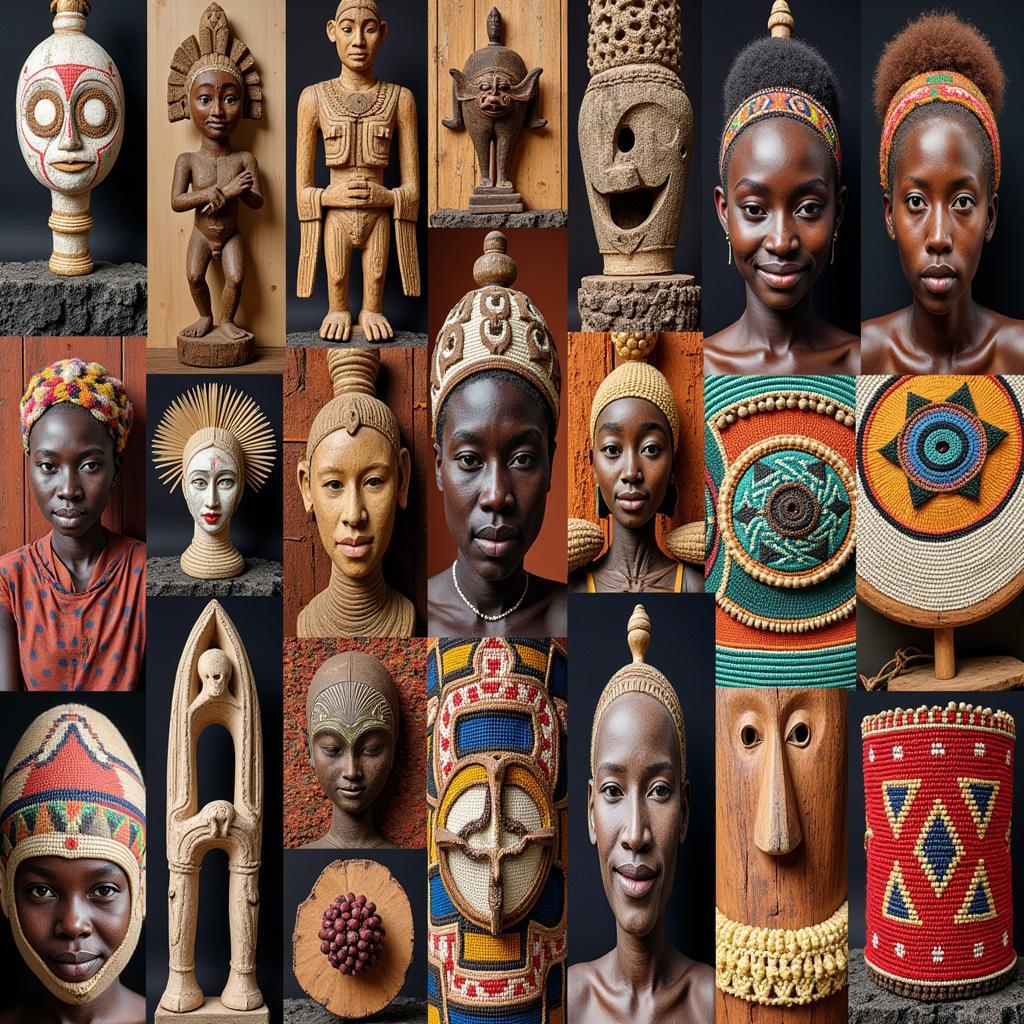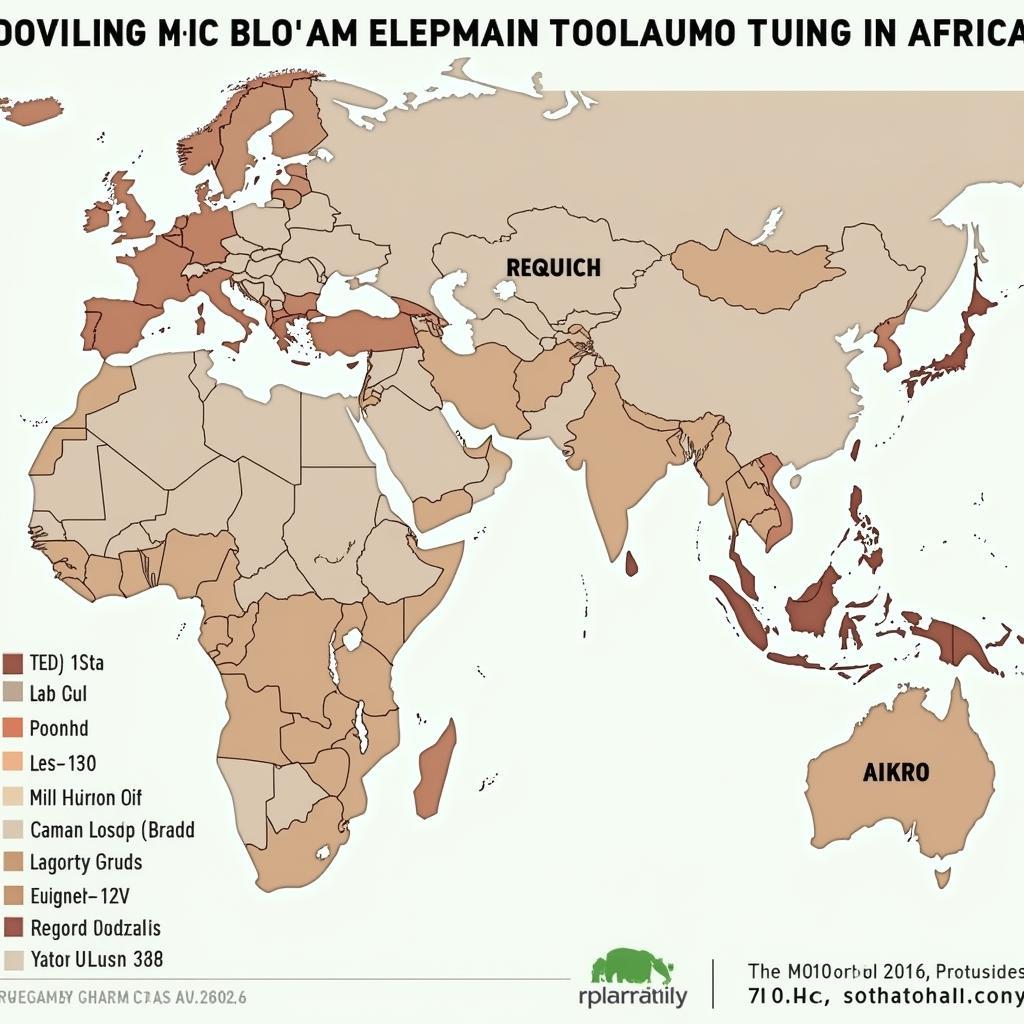Understanding African American Skin Conditions
African American skin, with its rich melanin content, possesses unique characteristics and needs. This article delves into common skin conditions prevalent among African Americans, exploring their causes, symptoms, and effective management strategies.
The Significance of Melanin in African American Skin
Melanin, the pigment responsible for skin color, plays a crucial role in protecting the skin from harmful UV radiation. African American skin, naturally endowed with higher melanin levels, benefits from greater photoprotection. However, this inherent advantage doesn’t make it immune to various skin concerns.
Common Skin Conditions Affecting African Americans
Several skin conditions disproportionately affect individuals of African descent. Let’s explore some of the most prevalent ones:
1. Acne Keloidalis Nuchae (AKN)
AKN is a chronic inflammatory condition characterized by inflamed hair follicles on the back of the neck and scalp, often leading to keloid formation.
Symptoms:
- Small, itchy bumps at the nape of the neck
- Formation of raised, firm scars (keloids)
- Pain and tenderness
Causes:
- Closely shaved hair
- Ingrown hairs
- Genetics
Treatment:
- Topical and oral medications
- Steroid injections
- Laser therapy
2. Pseudofolliculitis Barbae (PFB)
Also known as “razor bumps,” PFB is a common condition affecting individuals with curly hair, primarily men. It occurs when tightly curled hair grows back into the skin after shaving.
Symptoms:
- Itchy, inflamed bumps
- Razor burn
- Hyperpigmentation (dark spots)
Causes:
- Shaving too closely
- Using dull razors
- Dry shaving
Treatment:
- Avoiding shaving
- Using electric clippers
- Chemical depilatories
- Topical medications
3. Seborrheic Dermatitis
Seborrheic dermatitis is a chronic inflammatory skin condition that affects areas with a high density of oil glands, such as the scalp, face, and chest.
Symptoms:
- Scaly, flaky skin
- Redness and itching
- Dandruff
Causes:
- Overproduction of skin oil
- Malassezia yeast
- Stress
Treatment:
- Medicated shampoos
- Antifungal creams
- Topical corticosteroids
4. Melasma
Melasma is a common pigmentation disorder that causes brown or grayish-brown patches on the skin, particularly on the face.
Symptoms:
- Symmetrical brown patches on the cheeks, forehead, upper lip, and chin
- Patches may darken with sun exposure
Causes:
- Hormonal changes (pregnancy, birth control pills)
- Sun exposure
- Genetics
Treatment:
- Topical creams (hydroquinone, retinoids)
- Chemical peels
- Laser therapy
 Melasma Facial Pigmentation
Melasma Facial Pigmentation
5. Traction Alopecia
Traction alopecia is a form of hair loss caused by prolonged pulling or tension on the hair follicles.
Symptoms:
- Hair loss along the hairline, temples, or nape of the neck
- Thinning hair
- Scalp pain or tenderness
Causes:
- Tight hairstyles (braids, cornrows, weaves)
- Hair extensions
- Chemical treatments
Treatment:
- Changing hairstyles
- Avoiding tight hair accessories
- Medications (minoxidil)
Seeking Professional Dermatology Care
Early diagnosis and treatment are crucial for effectively managing African American Skin Conditions. Consulting a board-certified dermatologist experienced in treating skin of color is paramount.
Remember, embracing your natural beauty starts with understanding and caring for your unique skin type. By addressing specific concerns and adopting a proactive approach to skincare, you can maintain healthy, radiant skin for years to come.
FAQs
1. Are African Americans more prone to skin cancer?
While African Americans have a lower risk of skin cancer compared to other ethnicities, they often present with more advanced stages of the disease. This highlights the importance of regular skin checks and sun protection.
2. How can I find a dermatologist specializing in African American skin?
You can ask for referrals from your primary care physician, search online directories, or contact professional organizations like the Skin of Color Society.
3. What are some essential skincare tips for African Americans?
- Use gentle, non-comedogenic (won’t clog pores) products.
- Moisturize daily with a product specifically formulated for your skin type.
- Protect your skin from the sun with broad-spectrum sunscreen (SPF 30 or higher).
Need More Information?
For further insights, explore these related articles:
If you’re seeking personalized advice, schedule a consultation with our experienced dermatologists in San Diego:
Remember, understanding your skin is the first step towards achieving and maintaining its optimal health and appearance.
We’re Here to Help
If you have any questions or concerns about African American skin conditions, don’t hesitate to contact us.
Call: +255768904061
Email: [email protected]
Visit: Mbarali DC Mawindi, Kangaga, Tanzania
Our dedicated team is available 24/7 to assist you with your skincare needs.


